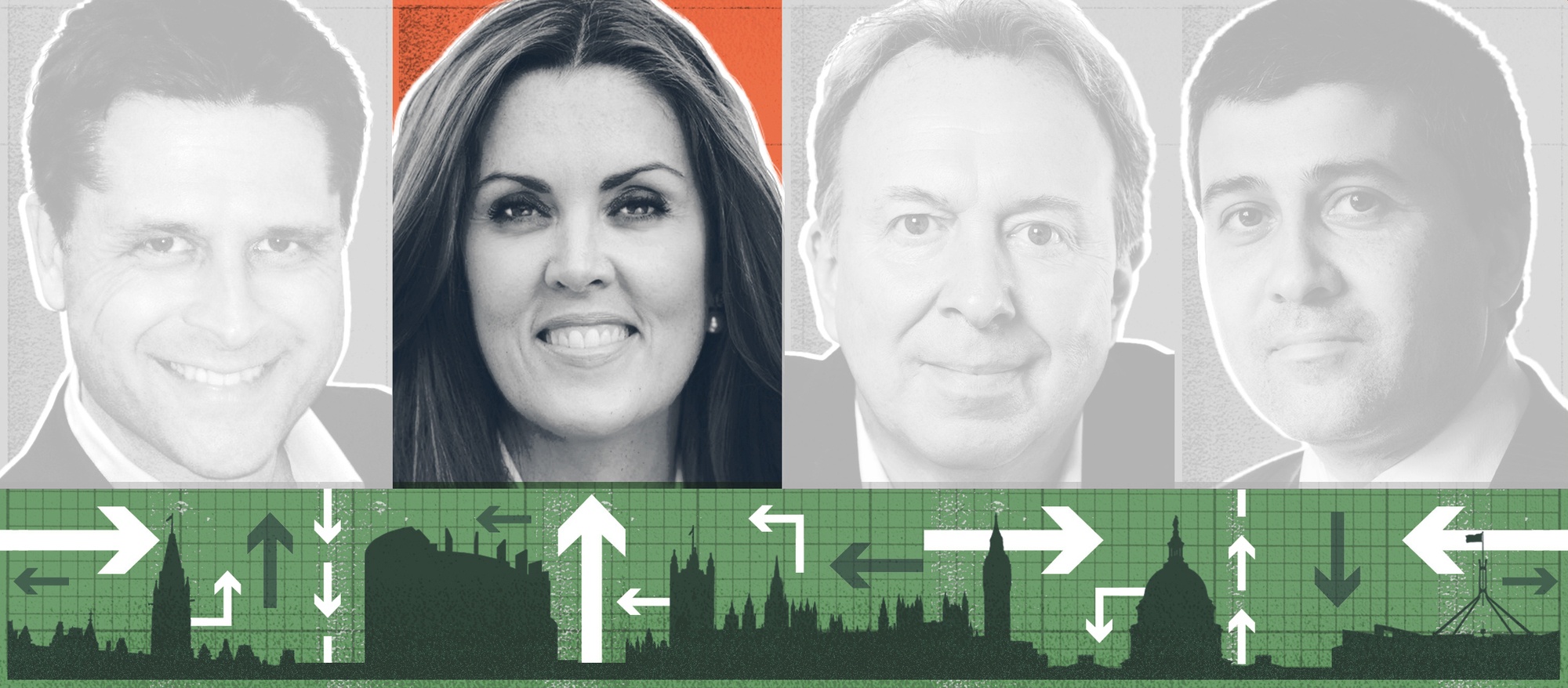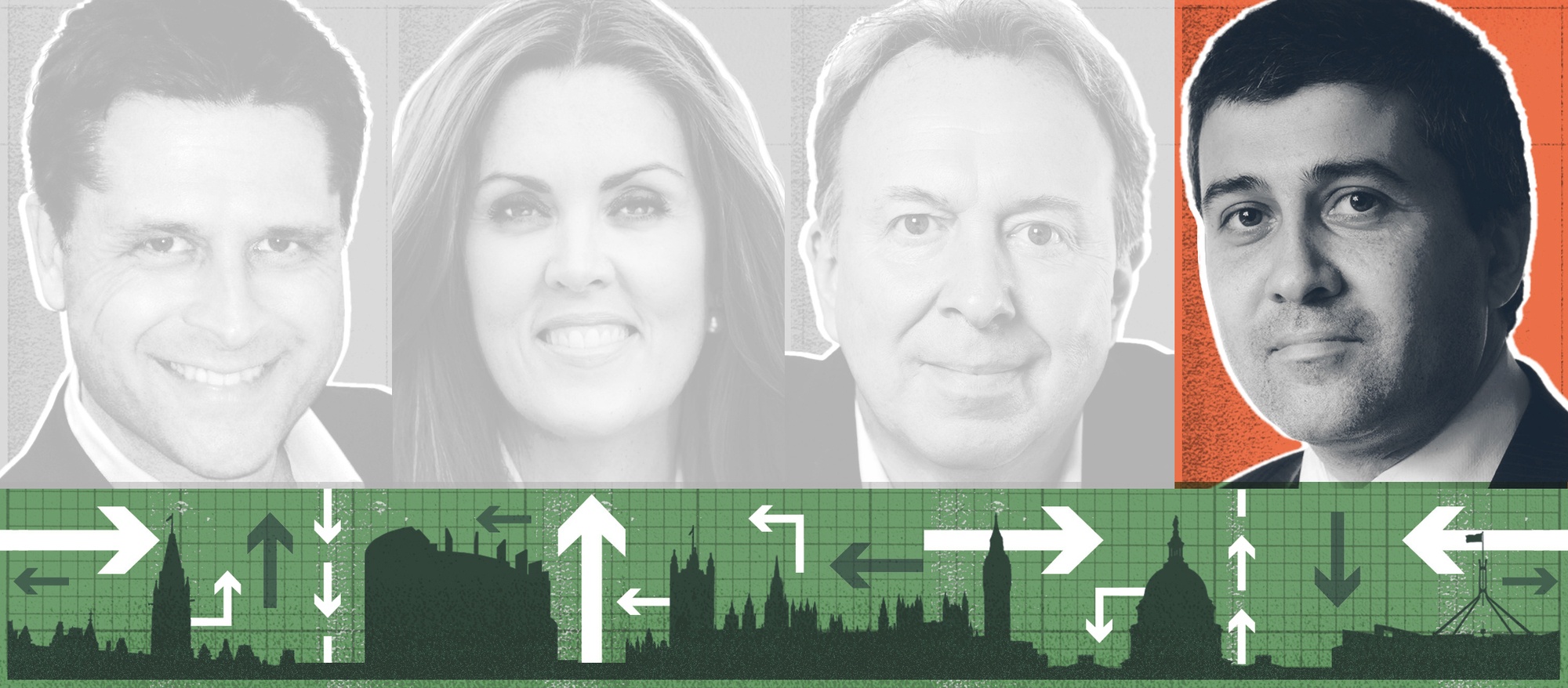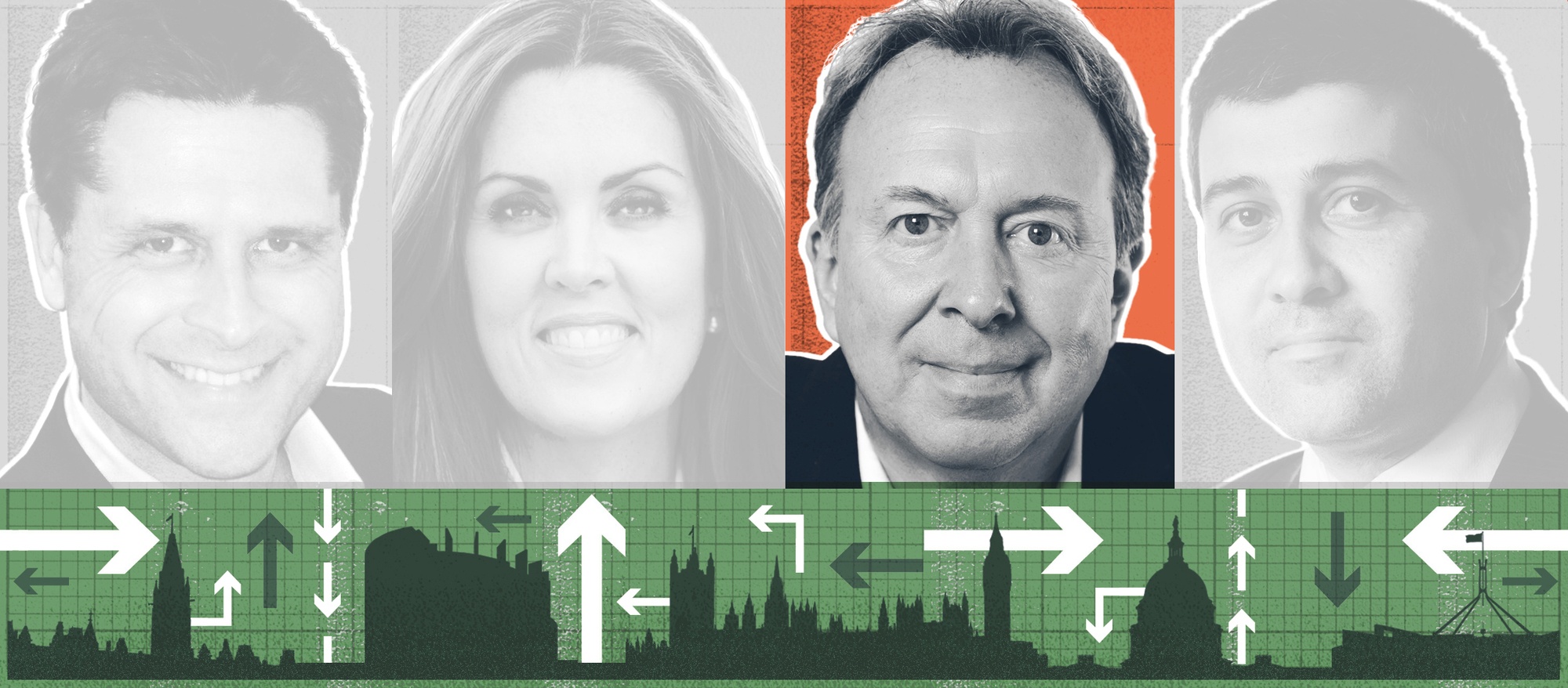Credit: Getty
Our political jury answers the first of three big questions we put to them. Read our background piece on the jury here. Unfortunately, for exceptional reasons, Patrick Muttart was unable to take part in this first round but he’ll be pontificating next time.
***
Are advanced nations at a political turning point, with public moods favouring bigger state, bigger spending, more economically interventionist policies?
 Peta Credlin: “Not necessarily. Americans elected Donald Trump not Hillary Clinton, let alone Bernie Sanders, and the Brexit vote was arguably a rejection of the statist EU. People are unhappy with the political establishment for numerous reasons: since the global financial crash (and for much longer in some countries) wages have been stagnant while asset prices have moved beyond the reach of many working people; the international pecking order has changed against the West; many people feel that their values and instincts are under assault due to the long march through the institutions of the counter-cultural left; but most importantly, the political establishment of the centre right and centre left has seemed impotent to deal with people’s concerns, ignoring them (David Cameron), attacking them (Hillary Clinton), or failing to address them (George W Bush).
Peta Credlin: “Not necessarily. Americans elected Donald Trump not Hillary Clinton, let alone Bernie Sanders, and the Brexit vote was arguably a rejection of the statist EU. People are unhappy with the political establishment for numerous reasons: since the global financial crash (and for much longer in some countries) wages have been stagnant while asset prices have moved beyond the reach of many working people; the international pecking order has changed against the West; many people feel that their values and instincts are under assault due to the long march through the institutions of the counter-cultural left; but most importantly, the political establishment of the centre right and centre left has seemed impotent to deal with people’s concerns, ignoring them (David Cameron), attacking them (Hillary Clinton), or failing to address them (George W Bush).
“People want a government that makes a difference and improves their lives but they don’t think that money grows on trees or that big government can solve every problem. In Australia the only issue that matters is energy policy. The push by adherents of the climate change religion was embraced when it meant virtue signalling and a cost-free nod to the climate agenda. Now that it has sent businesses to the wall and taken Australia from one of the world’s most reliable, most affordable energy nations to one of the most expensive – on the back of a purge of coal and expansion of taxpayer-subsidised renewables – the people are starting to push back.
“I don’t believe there’s enough evidence that the political mood has swung to the conventional left; just that politics is less predictable than ever and success goes to the people and parties who are most carefully listening and most plausibly responding to a very discontented public.”

Sunder Katwala: “No. I think people are pretty agnostic about the size of the state itself. The libertarian case for a much reduced role for the state seems to fall away quite quickly when the state is doing things that people like or want. Pressure for a stronger state comes from the right – on crime, borders and defence – as well as from the left, which wants less state on social issues, and more on economic ones. But I don’t see strong evidence of any sustained public desire for a much bigger state overall, especially once it has to be paid for.
“That is partly because the shrinking of the state was exaggerated too. Margaret Thatcher and Ronald Reagan did more to reshape expectations about the scope of the state than to actually shrink it. Public spending was 43% of GDP in Britain in 1979 and it was 42% in 1996. Reagan cut taxes much more than he reduced spending: that put him on the popular side of both arguments, at the price of a booming deficit. More than any sustained shift to the left or right, there is often more of a ‘thermostatic’ balancing tendency in public attitudes over time. A long period of right-of-centre government, focused on sound finances, can lead to increased concern about investing in public services. When the left is in, increased spending on schools and hospitals is popular, but there are more concerns about taxes, efficiency and value for money. Voters in most big democracies remain torn by that dilemma, unless other people can pay the taxes to spend more money.”

Steve Richards: “We are at a turning point as significant as the sea change that swept James Callaghan out of power in the UK in1979, a tide that formed the backdrop to the Reagan/Thatcher ideological dominance of the 1980s and 1990s. The financial crash in 2008 triggered new tidal waves. The UK general election earlier this year reflected the changing landscape with the main issues relating to how the state could be more active. Key debates in the UK campaign included how to raise the funds required for a growing elderly population and how the government could and should mediate in markets perceived to be failing.
“The so-called outsiders, from Donald Trump to Jeremy Corbyn, are bound by one common theme. They meet a demand for the state to intervene more. Trump might be ‘anti-government’ in theory but he was elected on a programme of intervention and high spending on capital projects that was not dissimilar in some respects to the programme advocated by Bernie Sanders. Trump reconciled his loathing of ‘big government’ by personifying the state. He, Donald Trump, would intervene in labour markets and invest billions in infrastructure.
“The question of what governments can do dominates virtually every election in advanced nations. Compare this with elections before the 2008 financial crash where the main theme was what governments should not do. Tony Blair won a landslide in 1997 after a campaign in which the leadership pledged to stick to the previous Conservative government’s spending plans and income tax levels. Although Theresa May remains Prime Minister, the 2017 election campaign marked a shift to the left in terms of the stated aims of all the main parties.”
***
Tomorrow we’ll post the jurors’ answers to question two;
“Is the advance of left-wing politicians like Jeremy Corbyn and Bernie Sanders down to economic issues or are we seeing the long-term fruits of a gradual left-liberal ascendancy in education, arts and entertainment?”









Join the discussion
Join like minded readers that support our journalism by becoming a paid subscriber
To join the discussion in the comments, become a paid subscriber.
Join like minded readers that support our journalism, read unlimited articles and enjoy other subscriber-only benefits.
Subscribe